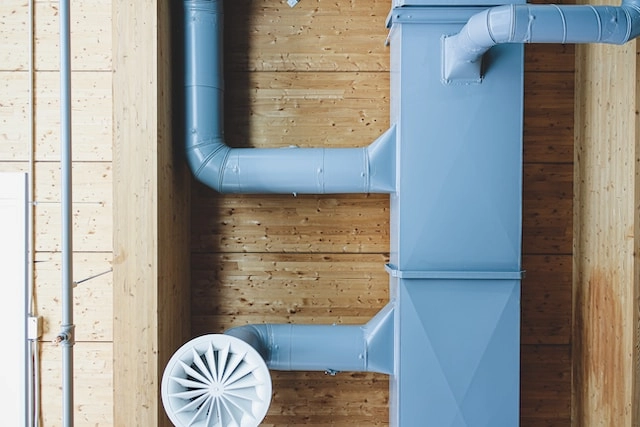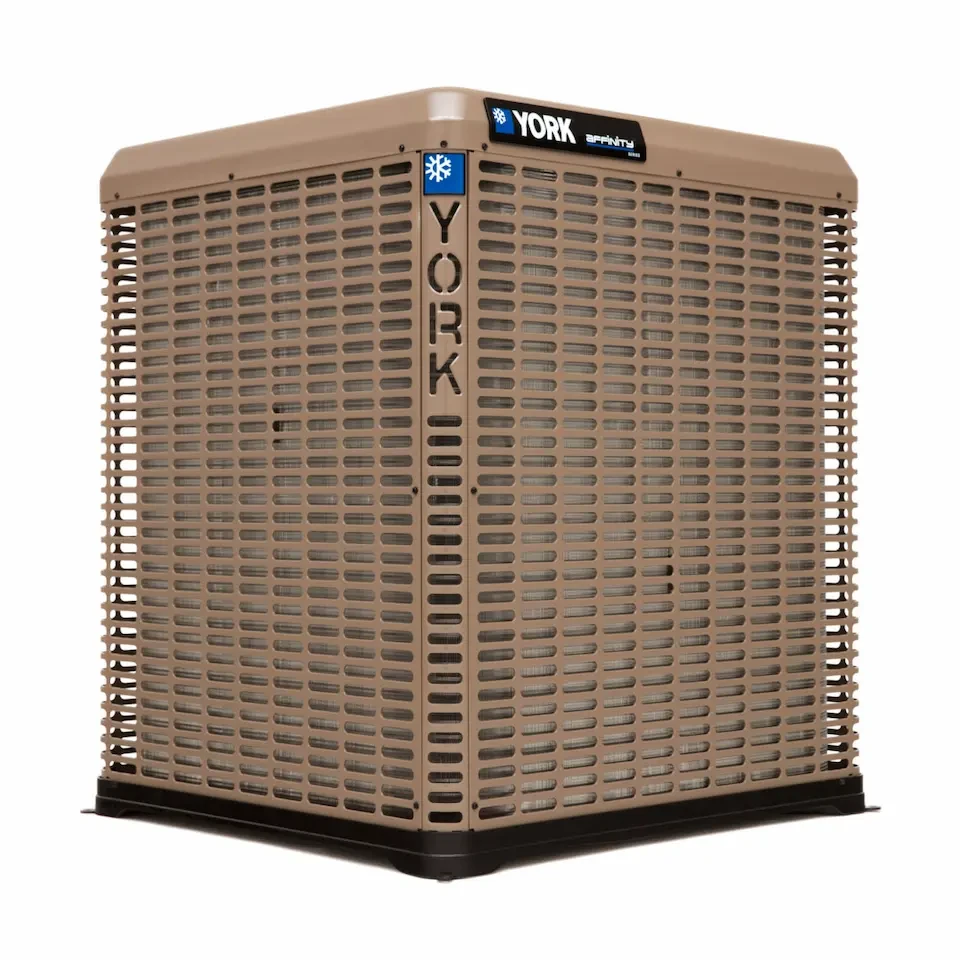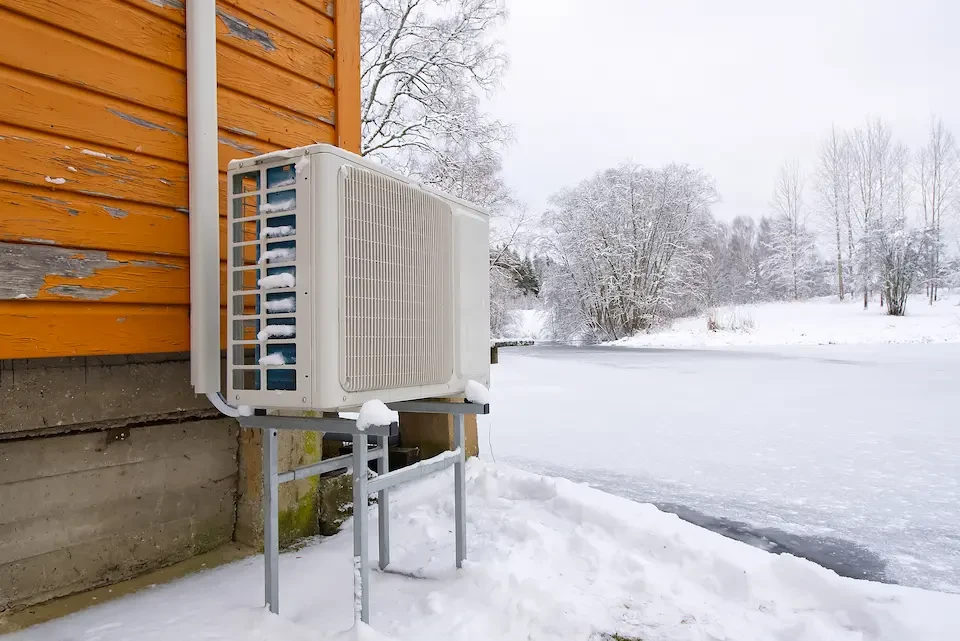November 13, 2023
Mini Split vs Heat Pump: Understanding the Pros and Cons of Each

When it comes to keeping your home comfortable year-round, choosing the right HVAC system is a decision not to be taken lightly. In the Raleigh, NC area, where the weather can be unpredictable, having an efficient and reliable heating and cooling system is essential. That’s where Bowman Mechanical Services comes in.
As your trusted local HVAC experts, we understand the importance of making an informed choice, which is why we’re here to shed light on a common dilemma homeowners face: choosing between a mini split vs heat pump.
What is a Mini Split?
Ductless mini-split systems are a modern marvel in the world of heating and cooling. These systems provide a highly efficient and flexible solution to keep your home comfortable year-round. A mini-split system, also known as a ductless mini-split or simply a mini-split, is a type of heating, ventilation, and air conditioning (HVAC) system that provides both heating and cooling to individual rooms or zones within a building. It works on the principle of heat transfer, similar to a traditional heat pump but without the need for ductwork.
Single-Zone Mini Splits
These ductless mini-split systems consist of one indoor unit connected to one outdoor unit. They are ideal for heating or cooling individual rooms or small spaces, making them a cost-effective and energy-efficient choice for targeted comfort.
Multi-Zone Mini Splits
Multi-zone systems feature multiple indoor units connected to a single outdoor unit. They provide zoned comfort, allowing you to independently control the temperature in various areas of your home. This versatility is especially valuable for homes with different climate needs in different rooms.
Advantages of Mini Splits
Mini-split systems offer several compelling advantages:
Energy Efficiency: Mini splits use inverter technology, which adjusts the compressor’s speed to maintain consistent temperatures, reducing energy consumption and lowering utility bills.
Zoning Capabilities: With mini splits, you can create customized comfort zones within your home. This means you can heat or cool specific rooms as needed, rather than conditioning the entire house.
Installation Flexibility: Mini splits are ductless systems, eliminating the need for extensive ductwork installation. This flexibility allows for easier and more cost-effective retrofits in existing homes and offers design freedom for new construction projects.
Disadvantages of Mini Splits
While mini splits offer numerous benefits, it’s essential to consider their drawbacks:
Higher Upfront Costs: Mini-split systems typically have a higher initial cost compared to traditional HVAC systems. However, the energy savings over time can often offset this upfront expense.
Aesthetics: The indoor units of mini splits are visible and mounted on the walls or ceilings. Some homeowners may find them less aesthetically pleasing compared to central air systems with hidden ducts.
Maintenance Requirements: Regular preventative maintenance is crucial to keep mini splits operating efficiently. Filters and coils need cleaning, and refrigerant levels should be checked periodically, which may require professional service.

What is a Heat Pump?
Heat pumps are versatile and efficient heating and cooling systems that can provide year-round comfort in your home. A heat pump is a mechanical device that transfers heat from one area to another, using the principles of refrigeration to either heat or cool a space. Unlike traditional heating systems that generate heat, heat pumps move heat from the outdoors into your home during the winter for heating and reverse the process during the summer to provide cooling.
At its core, a heat pump consists of three key components: an evaporator, a compressor, and a condenser. The refrigerant flows through these components, absorbing heat from the source area (outdoors or indoors) and releasing it into the target area of the home to maintain the desired temperature.
Air-Source Heat Pumps
An air source heat pump is the most common type of heat pump and extracts heat from the outdoor air to heat your home in the winter. They can also cool your home during the summer by removing heat from indoors.

Geothermal Heat Pumps
Geothermal heat pump systems utilize the stable temperature of the ground to heat or cool your home. They are highly efficient but may have higher upfront installation costs.
Ductless Mini-Split Heat Pumps
Similar to air-source heat pumps, but without ductwork, mini-split heat pumps offer zoned comfort and are ideal for homes without existing duct systems.
Heat Pump Advantages
Heat pumps offer several notable advantages:
Year-Round Functionality: Heat pumps provide both heating and cooling functions in one system, making them versatile and suitable for all seasons.
Energy Efficiency: Heat pumps are known for their energy efficiency. They can deliver more heat energy than the electricity they consume, resulting in lower utility bills.
Cost-Effectiveness: Over time, the energy savings provided by heat pumps can often offset their initial installation costs, making them a cost-effective choice for long-term comfort.
Disadvantages of Heat Pumps
It’s essential to consider the potential drawbacks of heat pumps:
Limited Efficiency in Extreme Cold: Air-source heat pumps may experience reduced efficiency in extremely cold temperatures, requiring supplemental heating during severe winter weather.
Potential for Higher Operating Costs: In areas with high electricity rates, the operating costs of heat pumps, especially during the heating season, can be higher than those of other heating methods.
Installation Considerations: Proper HVAC installation is crucial for heat pumps to operate efficiently. In some cases, such as ground-source heat pumps, installation can be complex and costly.

Choosing Between a Mini Split vs Heat Pump
Selecting the right HVAC system for your home is a significant decision that can impact your comfort, energy efficiency, and budget. To make an informed choice between a mini-split vs heat pump, consider the following factors.
Climate and Location
Mini-split systems perform exceptionally well in regions with moderate climates characterized by mild winters and warm summers. These systems are particularly suited for areas like Raleigh, NC, where temperature extremes are relatively rare. On the other hand, heat pumps exhibit greater versatility, excelling in regions with varying climate conditions. Heat pumps are designed to efficiently handle the demands of fluctuating temperatures, making them a preferred choice for homeowners in locations with more extreme weather patterns.
Heating and Cooling Needs
Mini-split systems are well-known for their effectiveness in heating or cooling individual rooms or specific zones within your home. Conversely, heat pumps provide a comprehensive heating and cooling solution for your entire home. This makes heat pumps particularly suitable for larger homes or residences where maintaining a consistent temperature across all rooms is essential.
Budget Constraints
Mini-split systems often come with a lower upfront cost, especially when opting for single-zone configurations. Additionally, their zoning capabilities can result in energy savings over time, potentially offsetting the initial investment. In contrast, heat pumps typically involve a higher initial investment, particularly when considering geothermal heat pumps or ducted systems. However, it’s essential to weigh this against the long-term energy efficiency and potential utility savings that heat pumps can offer.
Aesthetic Preferences
Mini-split systems feature visible indoor units that are typically mounted on walls or ceilings. These units can impact the aesthetics of a room. On the other hand, heat pumps, especially ducted systems, can be concealed within your home’s infrastructure. This provides a more seamless and uncluttered interior appearance.
Long-Term Goals for Energy Efficiency
Mini-split systems are recognized for their energy-efficient operation, particularly in moderate climates. They are a suitable choice for homeowners looking to reduce energy consumption and lower utility bills. If your primary focus is on immediate energy efficiency, mini splits can provide excellent results. Heat pumps, on the other hand, offer year-round energy efficiency, making them a sustainable option for those looking to reduce their environmental impact and achieve long-term energy savings.
Maintenance and Servicing Considerations
Mini-split systems require regular maintenance, including tasks like cleaning filters and coils. However, the overall maintenance costs are typically lower compared to heat pumps. In contrast, heat pump maintenance requirements can vary depending on the type of system. Consider your willingness to invest time and resources in maintenance when evaluating heat pumps.
Contact Bowman Mechanical for HVAC Services in Raleigh
In the complex world of HVAC systems, making the right choice between a mini split vs heat pump can significantly impact your home’s comfort, efficiency, and overall well-being. Whether you’re leaning towards a mini-split system or a heat pump, the HVAC repair experts at Bowman Mechanical Services are here to guide you every step of the way.
Our team of skilled HVAC professionals possess the knowledge and experience to help you navigate through the decision-making process, ensuring you select the ideal HVAC solution tailored to your Raleigh home.
Contact us today by calling [phone] or filling out the form below to get started.

